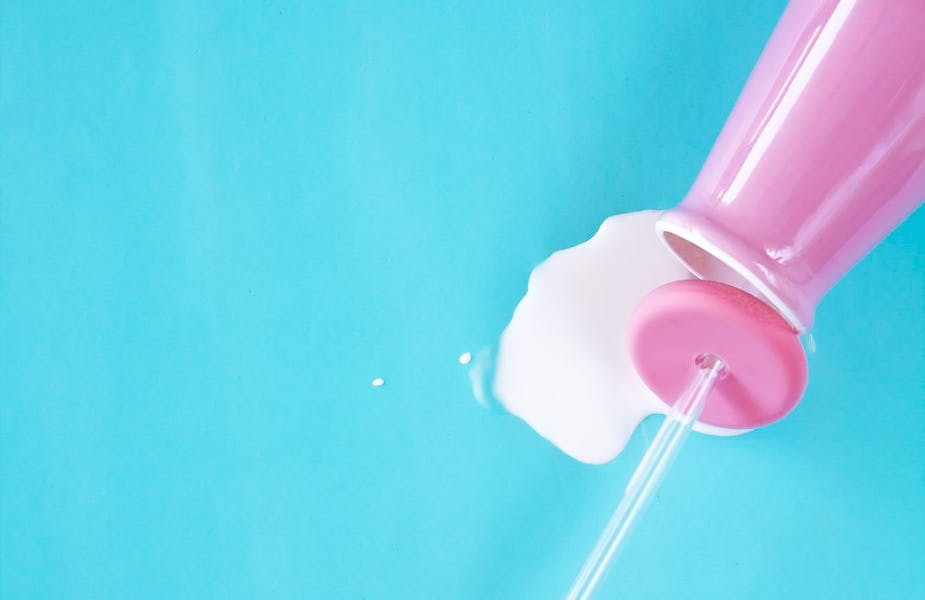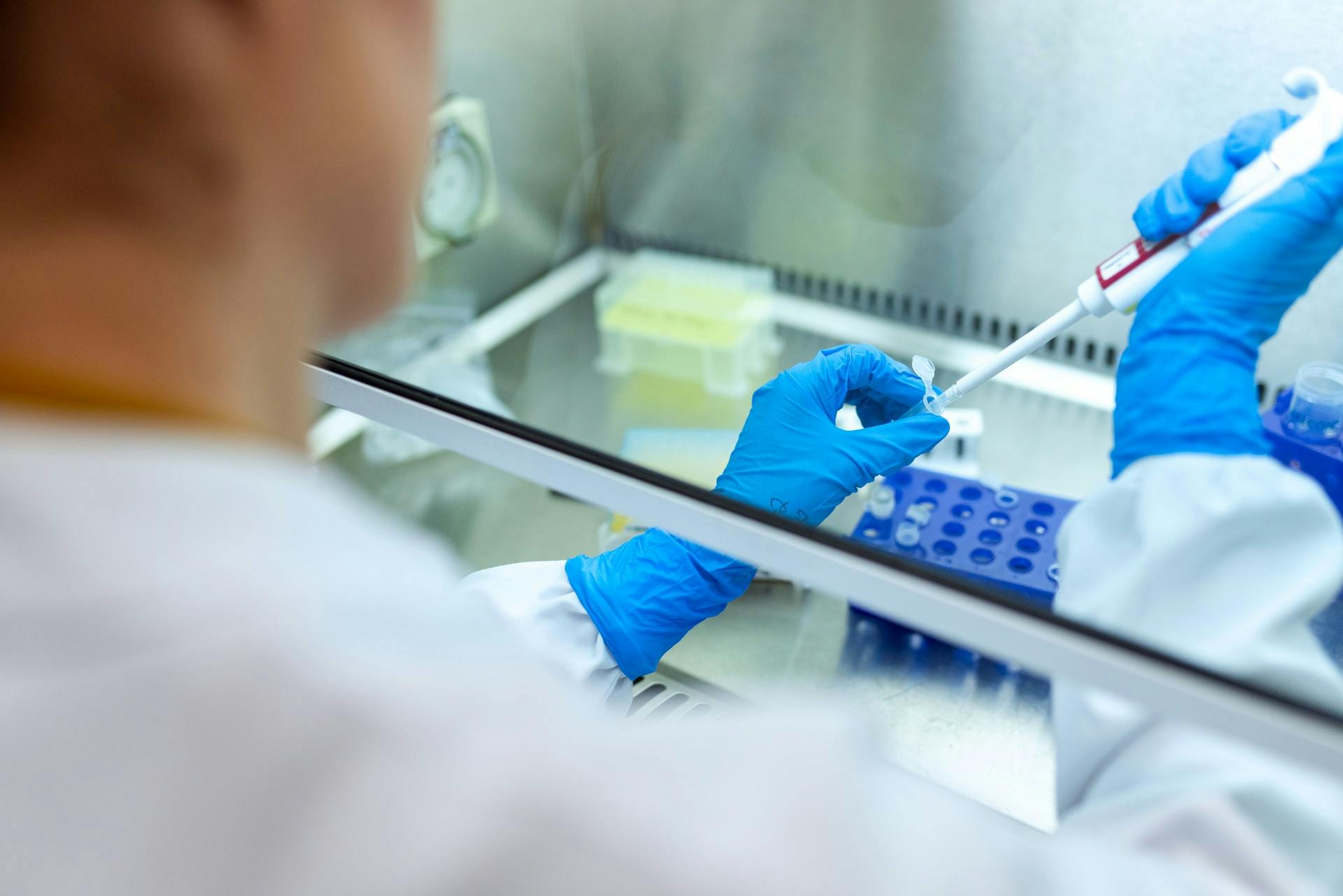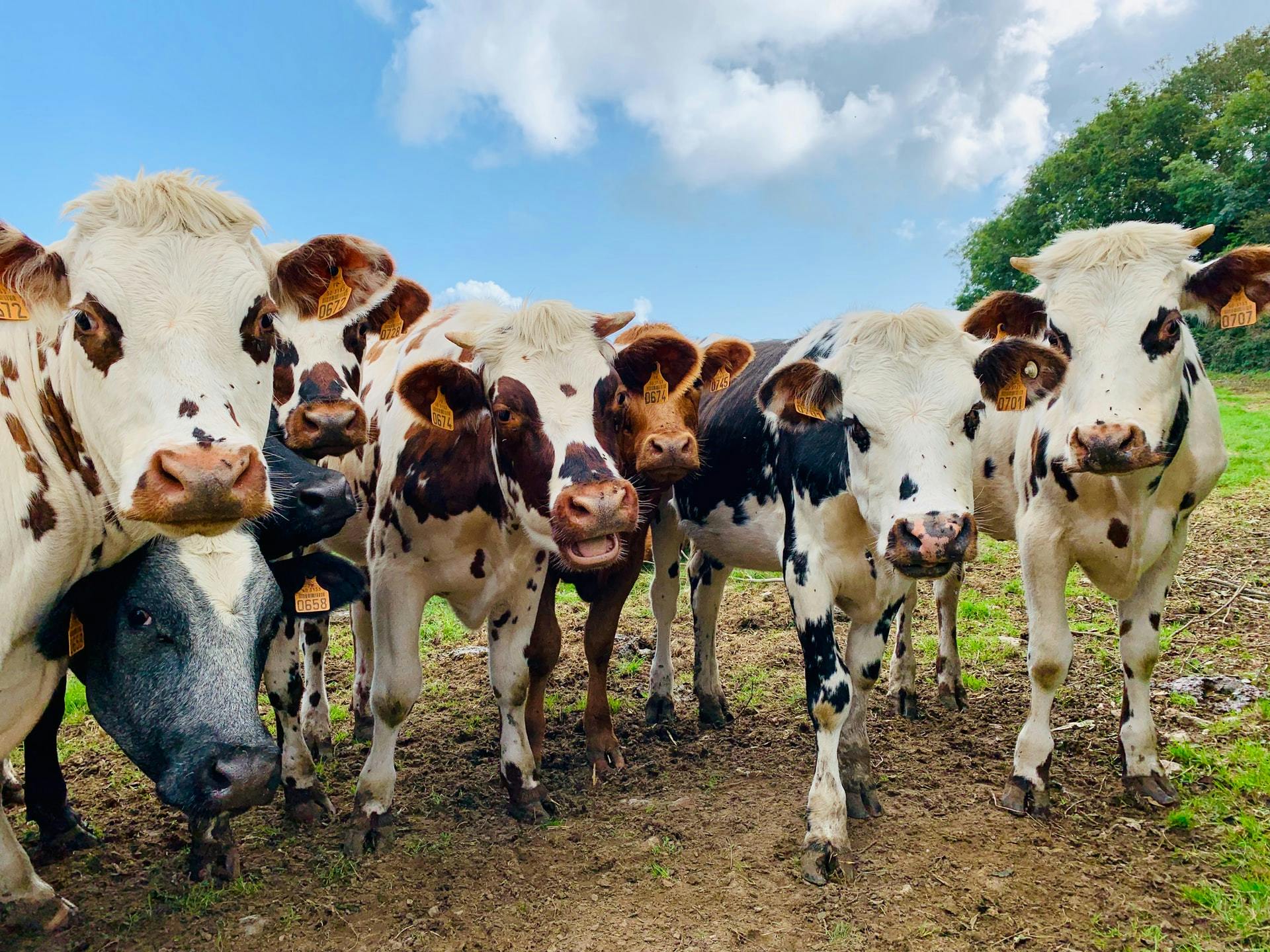Lifestyle
Lab Milk: The Pros And Cons
4min read
Wondering what some of the pros and cons are when it comes to sustainability, health and ethical factors surrounding lab milk? Keep reading to find out the ins and outs of this newly manufactured milk.
A quick recap on lab milk

Lab milk is made by adding DNA taken from mammary stem cells that naturally end up in cow’s milk, and inserting it into genetically modified yeast. This is then fermented with sugars before being extracted, filtered and turned into milk – then ice cream, cheese and so on.
Whilst there might be some immediate questions around whether lab milk can truly be classed as truly vegan, it is currently considered so by manufacturers, due to the fact it is made from yeast. The arguments against it are that lab milk uses milk-derived proteins (whey and casein) that were collected through milking– however, it is generally considered to be vegan. It definitely stands as a note-worthy proposition in the ever-expanding milk market.
Read more on the manufacturing process here.
Sustainability

It’s well known that a large portion of us choose veganism or some degree of a plant-based diet for environmental reasons; so what are some thoughts on the immediate and longer-term sustainability factors of lab milk vs cow’s milk and even plant-milk?
Cow’s milk
We know that the current dairy-industry is responsible for around 37% of methane and 4 % of greenhouse gas emissions (source). This is equivalent to around 2 billion tonnes of CO2 a year as well as consuming vast resources like water and land.
Plant-milk
There are some discrepancies between different types of plant-milk, but if we look at oat-milk specifically we know that it:
- Requires around 80% less land to produce the same volume of milk
- Is responsible for roughly a third of the CO2 emissions
- And requires 5% of the water needed for cow’s milk
Lab-milk

Pros
- If lab milk production were to be carried out on the same scale there might be an immediate drop in methane released into the environment
- And drastically less water would be required
Cons
- It is currently very expensive research
- And energy-intensive which makes it hard to picture lab milk production meeting environmental criteria in the near future
Beyond this, it’s hard to predict other negative effects as it’s never been done before. Tech-centric approaches to sustainability in general often provide more questions than answers.
Whereas with nature-based solutions, like planting trees, there’s relatively little that could go wrong and we know this is an effective way to store carbon and reverse the effects of climate change.
Health

So what about health? Whilst Perfect Day Foods has been FDA approved, the same status hasn’t yet been granted to all of the companies conducting similar research. What health benefits and risks might be attached to drinking lab milk that differs from cow’s milk and plant-milk?
Cow’s Milk
Many of the health benefits attributed to drinking dairy milk come directly from the dairy milk industry itself, who make a profit from its consumption. Nonetheless, cow’s milk is classed as a whole food and is nutrient-dense. Its consumption has been linked to bone health and development as well as heart health and diabetes prevention. However, negatives include skin conditions, allergies and lactose intolerance.
Plant-milk
If we take a look at oat milk again, it’s naturally nutrient-dense too and rich in dietary fibre, which is great for gut health. Most oat milk is also fortified with B vitamins (including B12), which is known for helping to keep your mood boosted as well as supporting healthy hair, skin and nails.
Lab milk
Pros
- It’s thought to be suitable for those with lactose intolerance
- Lab milk has started to be FDA approved
Cons
- As lab milk isn’t yet in mass production there’s still a lot to learn about its specific nutritional profile
- It might not be suitable for anyone with a dairy allergy
- As it’s a comparatively new field, any potential long-term effects aren’t yet known
Ethics and animal welfare

Whilst the ethical factors towards drinking cow’s milk and plant-milks might be well understood, why might drinking lab milk be that much more ambiguous?
Pros
The majority of researchers might deem the creation of lab milk cruelty-free as the mammary stem cells used are directly collected from cow’s milk.
Cons
However, others will argue that the collection of cow’s milk in the first place isn’t in line with vegan beliefs and therefore anything created from this point on is unethical in terms of animal welfare.
Hopefully, this has cleared a few things up for you! Keep an eye out for more thoughts and information on laboratory-produced milk.
By Fabian Jackson
Fabian is one of our lovely Content Marketing Assistants who loves writing almost as much as he loves coffee, old episodes of Escape to the Country (no judgement here), and cooking up a storm in his kitchen.
Let us take care of dinner
We help to make eating more plants easy and delicious. Fancy letting us take care of dinner? Check out our delicious meals here.
Shop now
